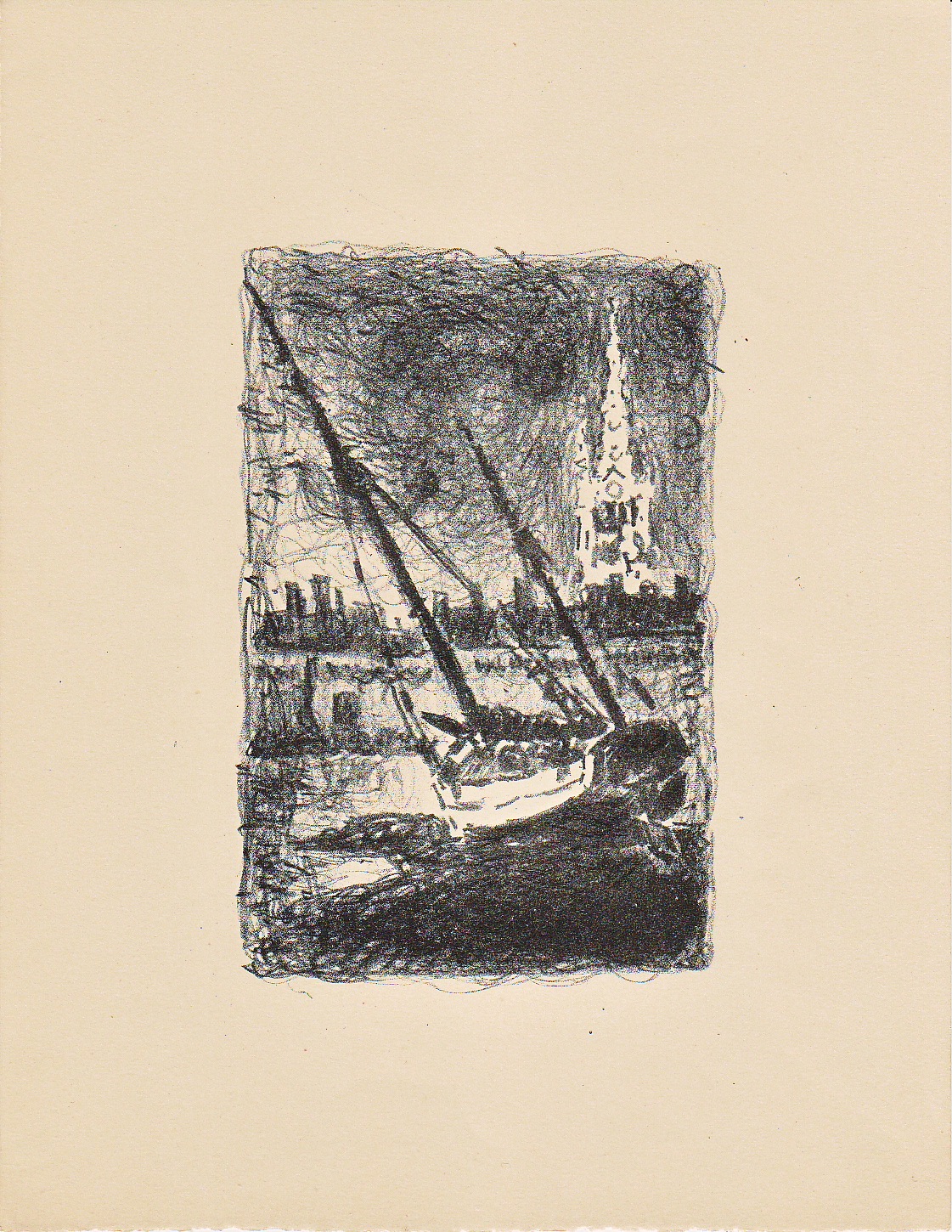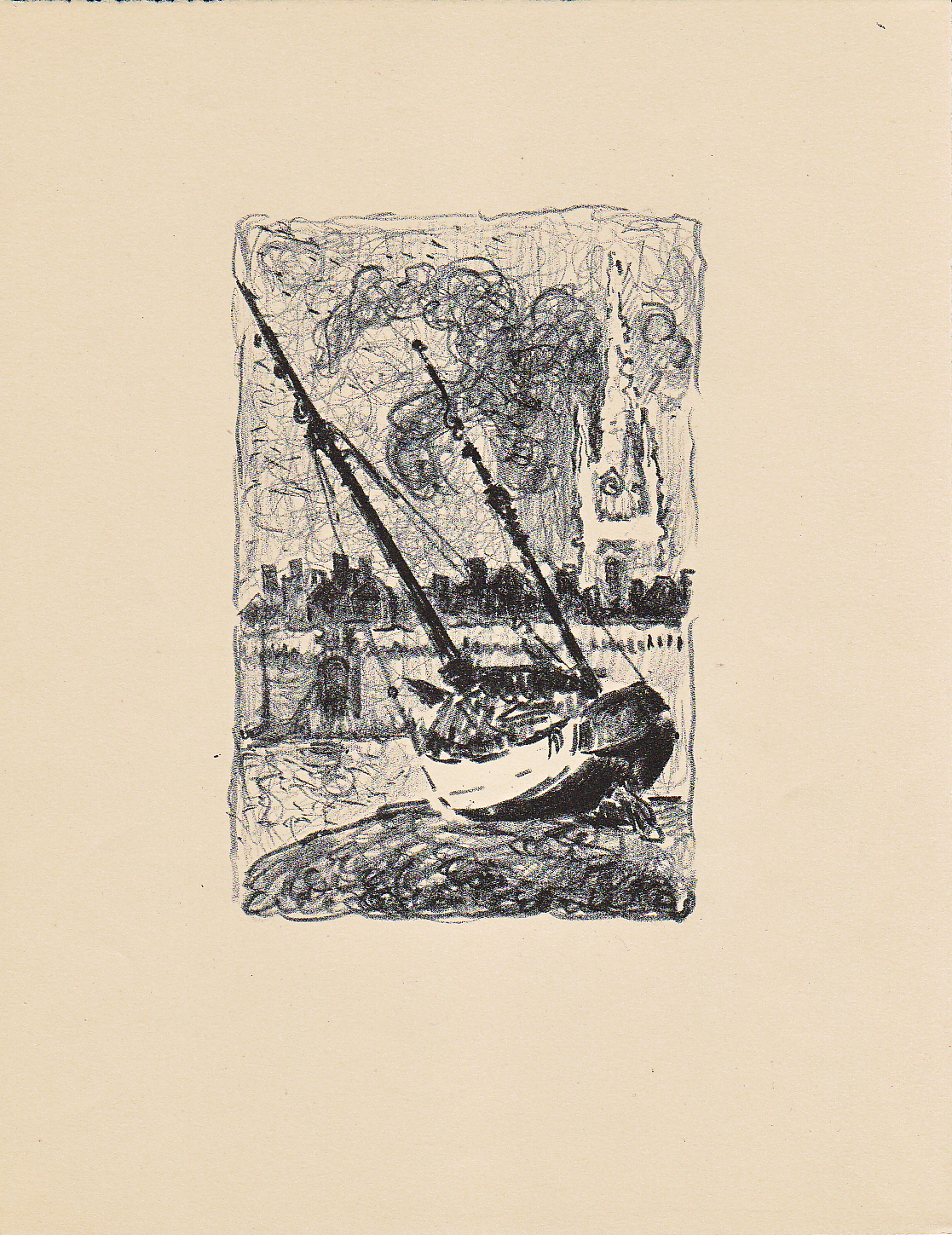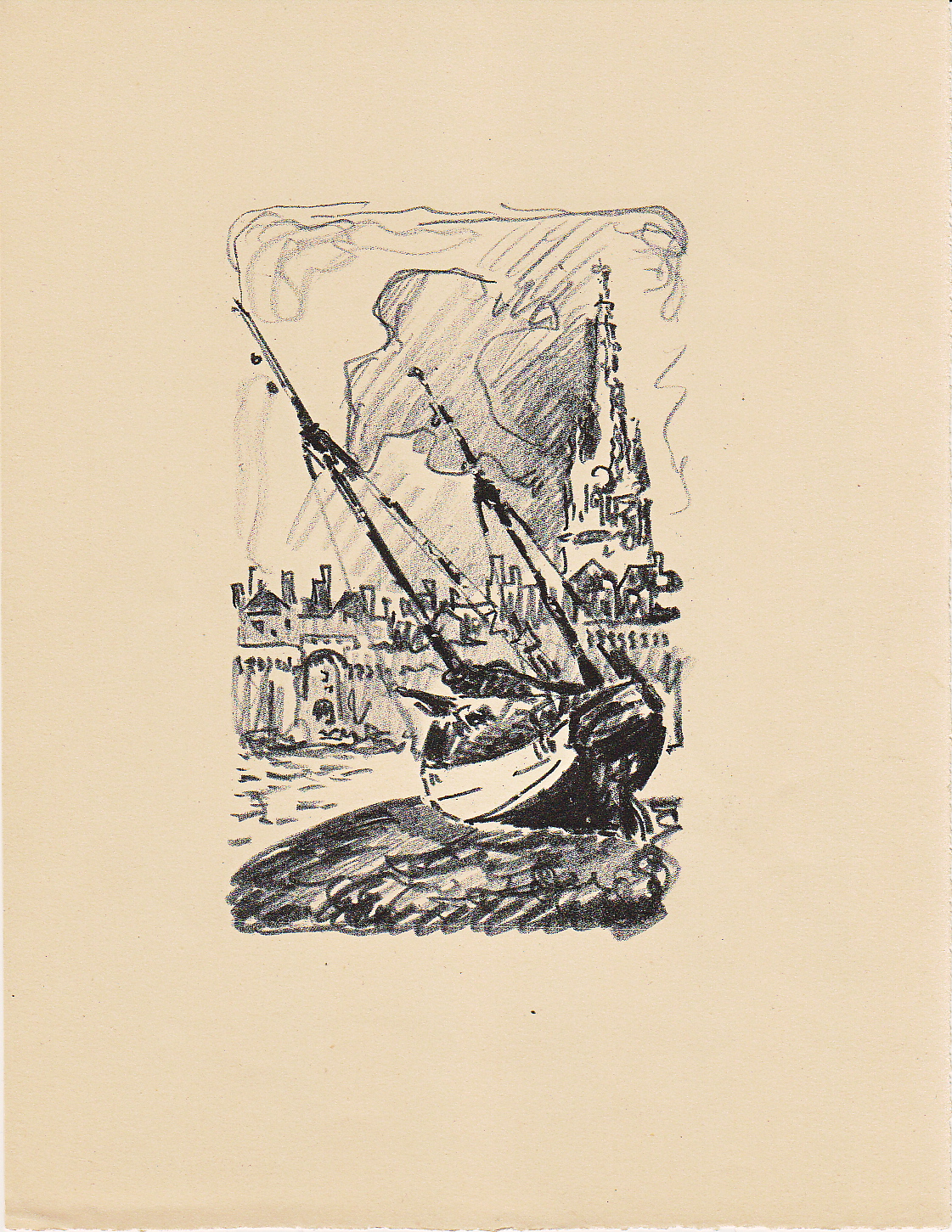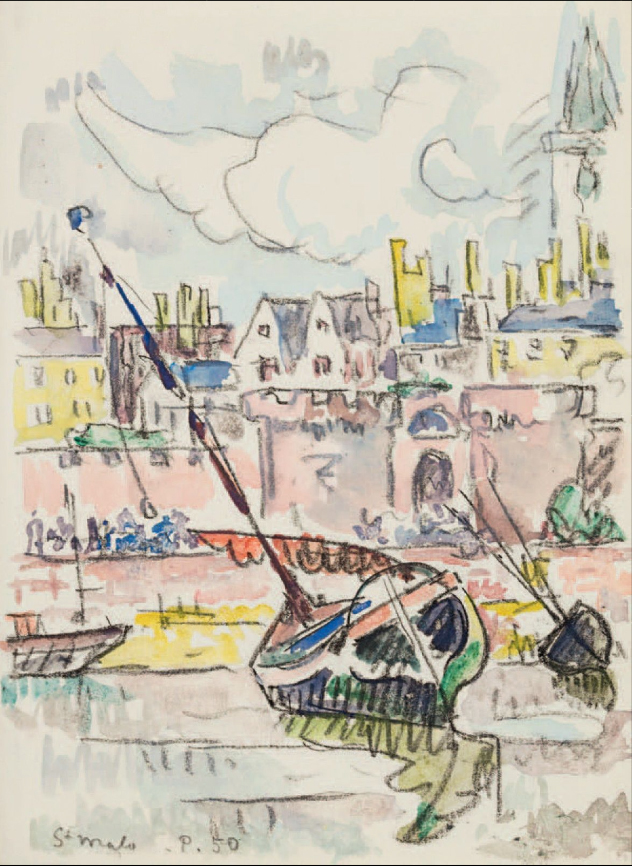Paul Signac
|
|
|
|
|
Saint Malo I,
II, and III
Saint Malo I, II, and III
lithographs,
circa 1927,
trial proofs of the only known state, pulled prior to the sole edition of
26, on medium-weight cream wove paper, with wide margins, and deckle
edges above or below, in impeccable condition
These three small prints were Signac's last prints, conceived as his contribution to an illustrated album of Stendhal's Mémoires d'un Touriste, published in 1927 by Editions G. Crès et Cie., and which comprised 13 other original lithographs by Albert André, Maurice Asselin, Jacques Laplace, Lucien Mainssieux, Albert Marquet, and Jean Puy.
S. 247x190mm.
Provenance: the George Besson collection* (a well-known art critic and collector of Paul Signac's work)
Originally
published in 1838**, Stendhal wrote extensively of his excursions through
Britanny and Normandy, consnonant with his goal in life as being the "pursuit of happiness".
Given Signac's lifetime devotion to sailing, notably in these regions, his artistic participation in illustrating this album seems an obvious choice.
Saint Malo is a major fortified port on the north coast of Britanny that was quite active during the 16th and 17th centuries, when it served as a hub for trade with the Americas. Jacques Cartier was born there before setting out to explore Canada. Chateaubriand was furthermore one of its most famous sons, whose birthplace Stendhal never managed to find...
Stendahl (p. 178) writes:
"Quelle idée noble et exagérée je me faisais de Saint-Malo, d'après ses hardis corsaires!"
["What a noble and exaggerated idea I had formed of Saint-Malo, from its bold privateers!"]
It is curious to note his consequent disappointment:
"Je ne sais comment je me suis laissé entrainer à perdre deux jours
dans cette ville singulière, mais peu aimable: au fond, c'est une
prison."
["I do not know how I let myself waste two days in this singular but unfriendly city: basically it is a prison."]
Would
this have something to do with Signac's choice of representing a
stranded vessel, left high and dry by the great tides that prevail
there?





